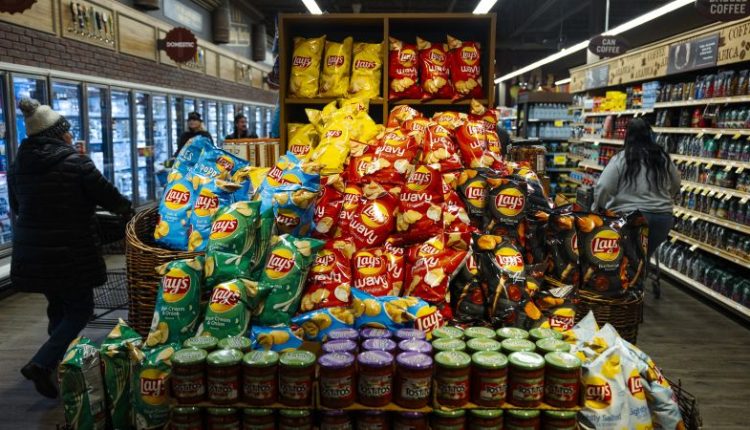Higher prices have gone too far even for salty snacks.
PepsiCo’s snack unit Frito-Lay posted a dip in revenue in its second quarter Thursday after multiple quarters of price increases. Years of inflation have resulted in “tighter household financial conditions,” the company said in prepared remarks, so “performance across many food categories, including snacks, has been subdued and consumers have become more value-conscious.”
As a result, the company is weighing some cost-cutting and boosting promotions for its portfolio of brands, which include Cheetos, Lay’s, Doritos and Smartfood, among other snacks.
While inflation has slowed down, American customers still haven’t recovered from higher prices in everyday categories like snacks. Everyone from President Joe Biden to the Cookie Monster has complained about “shrinkflation” in snacks, which is when companies cut the size of their products to save on costs. Snack shoppers are responding by either buying fewer chips or going private-label.
In recent months, a slew of major retailers have announced price cuts. That trend could continue as consumers become more restrained, CNN previously reported. The average price of potato chips in June 2024 was $6.56; in June 2020, as the pandemic was taking off, the average price was $5.09, according to Federal Reserve data.
“There is some value to be given back to consumers after three or four years of a lot of inflation,” PepsiCo chairman and CEO Ramon Laguarta said in a call to investors. Certain products, like unsalted potato chips or tortilla chips, could see a “value reset” and have lower prices, Laguarta said.
Laguarta said adjustments must be made for “certain consumers” in parts of Frito-Lay’s broad portfolio.
Laguarta said the company is investing in customers looking for a deal. The company said it would offer broader price tiers, using its variety multipacks that are often cheaper per bag, as an example. It’s boosting its marketing and in-store promotional placements for cheaper products.
“In the US, there is clearly a consumer that is more challenged and is a consumer that is telling us that in particular parts of our portfolio, they want more value to stay with our brands,” Laguarta told investors.
Read the full article here

